News & Media
TM-School hosts community engagement indaba on elections
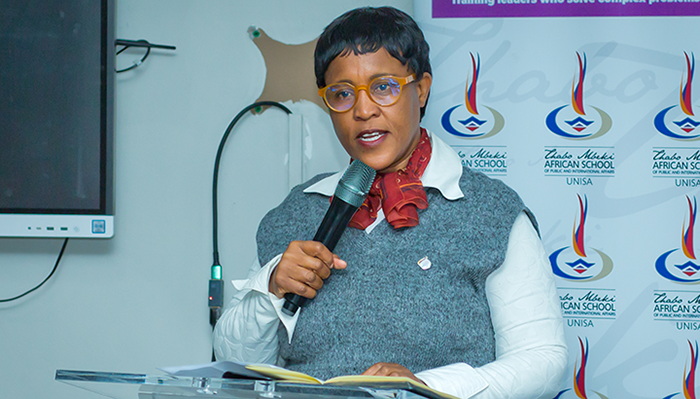
Prof Edith Phaswana, Acting Executive Dean: TM-School
On 17 July 2025, the Thabo Mbeki African School of Public and International Affairs (TM-School) hosted a community engagement indaba to reflect on the current South African coalition government under the theme "A critical reflection on the coalition government in South Africa, a year later".
Held in the Kgorong Building on the Unisa Muckleneuk Campus, the indaba was a project of the Electoral Dispute Resolution (EDR) Engaged Scholarship Programme in partnership with the Department of Political Sciences at Unisa.
The audience was addressed by speakers from academia, the political sphere and communities of practice. They all emphasised the importance of engaging with communities. Taking this theme even further, the EDR Engaged Scholarship Programme intends to produce a book on elections and the coalition government.
In her opening remarks, Acting Dean of the TM-School, Prof Edith Phaswana, gave a detailed history of coalition governments in South Africa, beginning with the coalition formed in 1924 between the National and Labour Parties under the leadership of JB Hertzog. Although established under the "South Africa First" policy, this coalition excluded black South African communities.
In 1948, the National and Afrikaner Parties formed a coalition, defeating the then United Party and paving the way for the system of apartheid. In 1994, another coalition was formed between the National Party, the African National Congress (ANC) and the Inkatha Freedom Party (IFP), under the banner of inclusivity, mitigating political tensions, promoting reconciliation and laying the foundation for democracy.
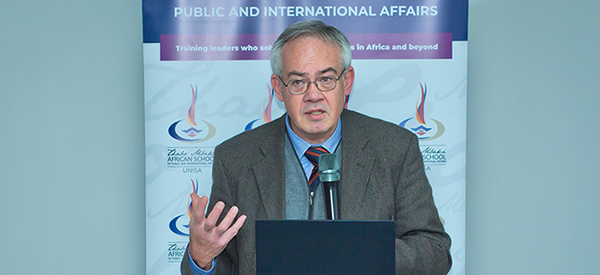
Prof Dirk Kotzé, Department of Political Sciences
Prof Dirk Kotzé of Unisa’s Department of Political Sciences spoke about the government of national unity (GNU) within the broader framework of the global context, and explained why government and coalition are important, how they are formed and their different categories.
Kotzé provided details about the current South African provincial and local GNU negotiations, giving insight into the statement of intent, foundational principles, basic minimum programme of priorities and agreed-upon modalities.
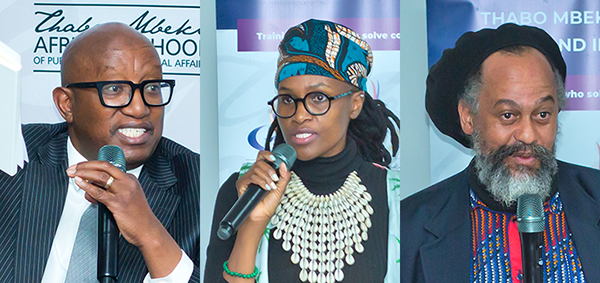
From left: Sandile Swana, Political Analyst and Principal Consultant, Centre for Strategic Leadership; Zandi Radebe, Lecturer, Department of Political Sciences; and Adv Sipho Mantula, Researcher, TM-School
Sandile Swana, a political analyst and principal consultant, spoke about the coalition government in South Africa one year post-formation. He indicated that the GNU had not taken everyone by surprise: Business Unity South Africa (BUSA), Business for South Africa (B4SA), Business Leadership South Africa (BLSA), the ANC Veterans League and the Democratic Alliance (DA) had known what they wanted and ensured that they achieved their aim. Four years before the GNU, clear targets were set by B4SA under operation Vulindlela to tackle crime and corruption, improve the ease of doing business, mobilise large-scale infrastructure projects, give clarity on land reform, foster education and skills development for the upliftment of black and coloured communities, and achieve financial inclusion.
Swana expressed the view that the GNU is not achieving its aims in terms of moving the country forward, regardless of the priorities set during Operation Vulindlela. By way of comparison, he noted that former President Thabo Mbeki, during his term, achieved 5% GDP growth through investment without changing and abolishing the transformation laws, as is happening now. Furthermore, he expressed the view that the current government is controlled by non-elected persons who benefit while ordinary citizens are being deprived and impoverished.
Offering a liberatory response, David Letsoalo, Acting Director: TM-School, questioned the issue of rationalism and a completely liberated rainbow nation, suggesting that South Africa is far from being as equal as it aspires to be.
Advocate Sipho Mantula, Researcher at the TM-School, provided a legal response focusing on legislation, active participation in issues of governance, sufficient consensus and deadlock-breaking mechanisms, and counselled the GNU to find common ground through a consultation programme.
Members representing engaged communities of practice were Calvin Kunene from Mabopane and Medupi Palane from Bahlabine-Tzaneen. Their presentations offered a perspective on issues such as the lack of basic service provision to their communities and crime, particularly the question of the involvement of young children in illegal activities. Kunene emphasised the importance of voter education and fairness in representation.
Boikhutso Mfusi, Researcher at the TM-School, gave a summary of the presentations, identifying areas of concern that the GNU should pay attention to so as to ensure fairness and justice within South African communities.
* By Boikhutso Mfusi, Researcher, Thabo Mbeki African School of Public and International Affairs
Publish date: 2025-07-31 00:00:00.0


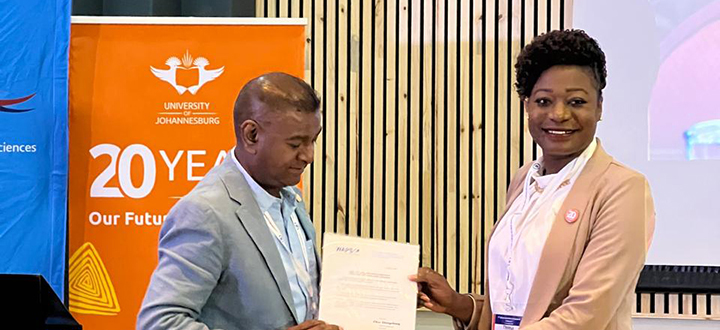 Unisa co-hosts major operations management conference
Unisa co-hosts major operations management conference
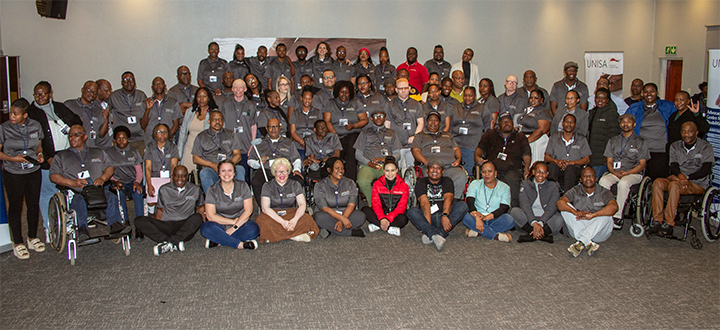 Strengthening disability-inclusive practices across higher education
Strengthening disability-inclusive practices across higher education
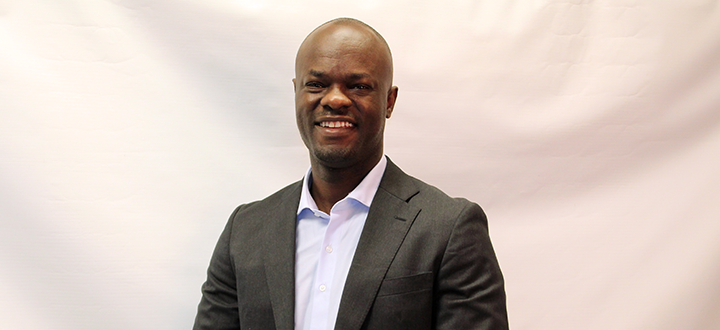 Unisa astrophysicist receives prestigious Royal Society award
Unisa astrophysicist receives prestigious Royal Society award
 Unisa's eminent women academics recognised for science excellence
Unisa's eminent women academics recognised for science excellence
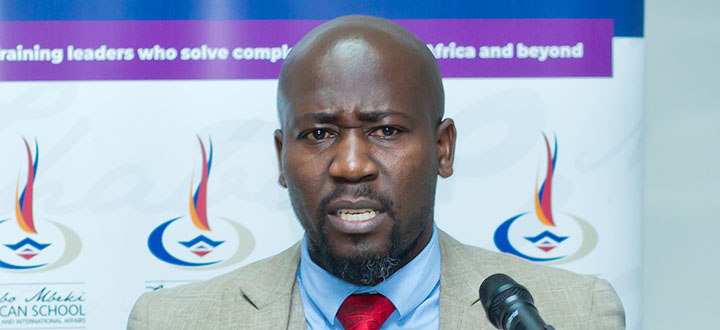 Illicit trade in Africa’s natural resources: Experts sound the alarm at Unisa seminar
Illicit trade in Africa’s natural resources: Experts sound the alarm at Unisa seminar